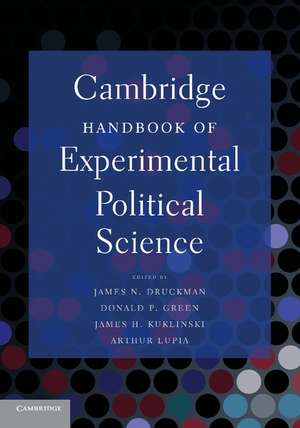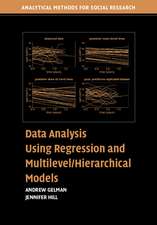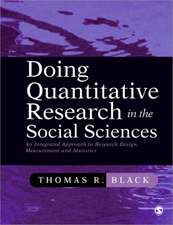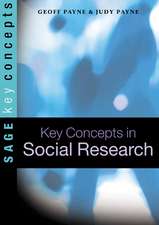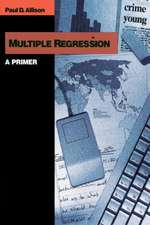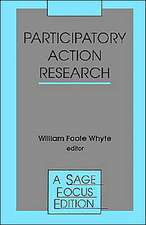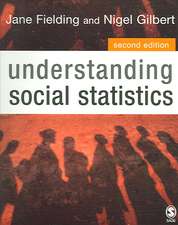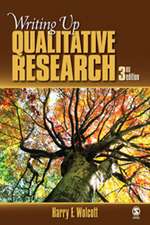Cambridge Handbook of Experimental Political Science
Editat de James N. Druckman, Donald P. Greene, James H. Kuklinski, Arthur Lupiaen Limba Engleză Paperback – 12 iun 2011
| Toate formatele și edițiile | Preț | Express |
|---|---|---|
| Paperback (1) | 411.31 lei 6-8 săpt. | |
| Cambridge University Press – 12 iun 2011 | 411.31 lei 6-8 săpt. | |
| Hardback (1) | 1028.42 lei 6-8 săpt. | |
| Cambridge University Press – 5 iun 2011 | 1028.42 lei 6-8 săpt. |
Preț: 411.31 lei
Nou
Puncte Express: 617
Preț estimativ în valută:
78.70€ • 82.39$ • 65.12£
78.70€ • 82.39$ • 65.12£
Carte tipărită la comandă
Livrare economică 05-19 aprilie
Preluare comenzi: 021 569.72.76
Specificații
ISBN-13: 9780521174558
ISBN-10: 0521174554
Pagini: 578
Ilustrații: 36 b/w illus. 12 tables
Dimensiuni: 178 x 249 x 33 mm
Greutate: 1 kg
Editura: Cambridge University Press
Colecția Cambridge University Press
Locul publicării:New York, United States
ISBN-10: 0521174554
Pagini: 578
Ilustrații: 36 b/w illus. 12 tables
Dimensiuni: 178 x 249 x 33 mm
Greutate: 1 kg
Editura: Cambridge University Press
Colecția Cambridge University Press
Locul publicării:New York, United States
Cuprins
1. Experimentation in political science James N. Druckman, Donald P. Green, James H. Kuklinski and Arthur Lupia; Part I. Designing Experiments: 2. Experiments: an introduction to core concepts James N. Druckman, Donald P. Green, James H. Kuklinski and Arthur Lupia; 3. Internal and external validity Rose McDermott; 4. Students as experimental participants: a defense of the 'narrow data base' James N. Druckman and Cindy D. Kam; 5. Economics vs. psychology experiments: stylization, incentives, and deception Eric S. Dickson; Part II. The Development of Experiments in Political Science: 6. Laboratory experiments in political science Shanto Iyengar; 7. Experiments and game theory's value to political science John H. Aldrich and Arthur Lupia; 8. The logic and design of the survey experiment: an autobiography of a methodological innovation Paul M. Sniderman; 9. Field experiments in political science Alan S. Gerber; Part III. Decision Making: 10. Attitude change experiments in political science Allyson L. Holbrook; 11. Conscious and unconscious information processing with implications for experimental political science Milton Lodge, Charles Taber and Brad Verhulst; 12. Political knowledge Cheryl Boudreau and Arthur Lupia; Part IV. Vote Choice, Candidate Evaluations, and Turnout: 13. Candidate impressions and evaluations Kathleen M. McGraw; 14. Media and politics Thomas E. Nelson, Sarah M. Bryner and Dustin M. Carnahan; 15. Candidate advertisements Shana Kushner Gadarian and Richard R. Lau; 16. Voter mobilization Melissa R. Michelson and David W. Nickerson; Part V. Interpersonal Relations: 17. Trust and social exchange Rick K. Wilson and Catherine C. Eckel; 18. An experimental approach to citizen deliberation Christopher F. Karpowitz and Tali Mendelberg; 19. Social networks and political context David W. Nickerson; Part VI. Identity, Ethnicity, and Politics: 20. Candidate gender and experimental political science Kathleen Dolan and Kira Sanbonmatsu; 21. Racial identity and experimental methodology Darren Davis; 22. The determinants and political consequences of prejudice Vincent L. Hutchings and Spencer Piston; 23. Politics from the perspective of minority populations Dennis Chong and Jane Junn; Part VII. Institutions and Behavior: 24. Experimental contributions to collective-action theory Eric Coleman and Elinor Ostrom; 25. Legislative voting and cycling Gary Miller; 26. Electoral systems and strategic voting (laboratory election experiments) Rebecca B. Morton and Kenneth C. Williams; 27. Experimental research on democracy and development Ana L. De La O and Leonard Wantchekon; Part VIII. Elite Bargaining: 28. Coalition experiments Daniel Diermeier; 29. Negotiation and mediation Daniel Druckman; 30. The experiment and foreign policy decision making Margaret G. Hermann and Binnur Ozkececi-Taner; Part IX. Advanced Experimental Methods: 31. Treatment effects Brian J. Gaines and James H. Kuklinski; 32. Making effects manifest in randomized experiments Jake Bowers; 33. Design and analysis of experiments in multilevel populations Betsy Sinclair; 34. Analyzing the downstream effects of randomized experiments Rachel Milstein Sondheimer; 35. Mediation analysis is harder than it looks John G. Bullock and Shang E. Ha; Afterword: 36. Campbell's ghost Donald R. Kinder.
Recenzii
'This handbook is a monumental undertaking. It contains something of value for political scientists of every methodological and substantive stripe.' Morris P. Fiorina, Stanford University
'Once rare outside the psychological laboratory, experimental methods are now used throughout the social sciences. Focusing on experimentation in political science, this handbook provides a state-of-the-art review of the history, logic, and methodology of experimentation, including the implementation of experiments in representative surveys. Comprehensive reviews of what has been learned from experiments in areas as diverse as voter behavior, institutions, identity, and elite bargaining highlight the substantive contributions of experimental research to social science theory testing and development. Written by leading experts in the field, this handbook will be a valuable and authoritative resource for years to come.' Norbert Schwarz, University of Michigan
'This handbook is a long overdue contribution to a burgeoning area in political science. It will be extremely useful to any political scientist contemplating or currently using experimental methods.' Diana C. Mutz, University of Pennsylvania
'In the Cambridge Handbook of Experimental Political Science, Druckman, Green, Kuklinski, and Lupia put together thirty-six contributed chapters covering the design, scope, and methods of experimental political science. They have taken on the core issues, such as the trade-offs between internal and external validity. They explore the value of laboratory versus field versus survey experiments. The chapters here show how political science draws from other experimental fields, creating its own broadly unique approach to experimentation. The authors of the chapters here explore the ways in which experiments drawn from the traditions of cognitive science, psychology, and economics take some things for granted and how experiments in each of these traditions assume different things to be consequential. This book should be used in every first-year graduate curriculum, not just as a book on experiments, but as an excellent primer on research design.' Mathew D. McCubbins, University of Southern California
'Once rare outside the psychological laboratory, experimental methods are now used throughout the social sciences. Focusing on experimentation in political science, this handbook provides a state-of-the-art review of the history, logic, and methodology of experimentation, including the implementation of experiments in representative surveys. Comprehensive reviews of what has been learned from experiments in areas as diverse as voter behavior, institutions, identity, and elite bargaining highlight the substantive contributions of experimental research to social science theory testing and development. Written by leading experts in the field, this handbook will be a valuable and authoritative resource for years to come.' Norbert Schwarz, University of Michigan
'This handbook is a long overdue contribution to a burgeoning area in political science. It will be extremely useful to any political scientist contemplating or currently using experimental methods.' Diana C. Mutz, University of Pennsylvania
'In the Cambridge Handbook of Experimental Political Science, Druckman, Green, Kuklinski, and Lupia put together thirty-six contributed chapters covering the design, scope, and methods of experimental political science. They have taken on the core issues, such as the trade-offs between internal and external validity. They explore the value of laboratory versus field versus survey experiments. The chapters here show how political science draws from other experimental fields, creating its own broadly unique approach to experimentation. The authors of the chapters here explore the ways in which experiments drawn from the traditions of cognitive science, psychology, and economics take some things for granted and how experiments in each of these traditions assume different things to be consequential. This book should be used in every first-year graduate curriculum, not just as a book on experiments, but as an excellent primer on research design.' Mathew D. McCubbins, University of Southern California
Descriere
This volume provides the first comprehensive overview of how political scientists have used experiments to transform their field of study.
